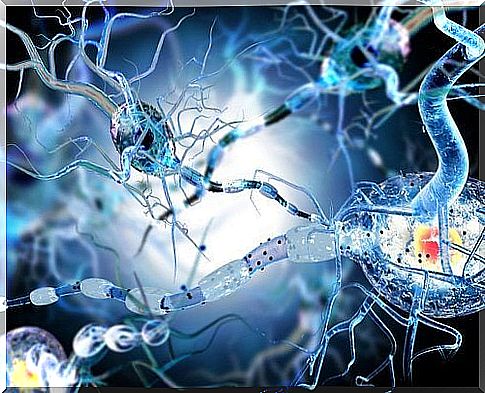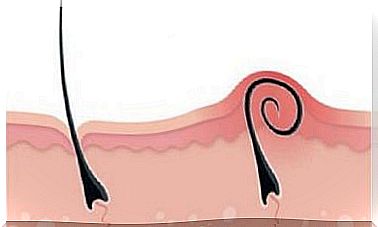Topiramate: Uses And Side Effects
Topiramate is a medicine that belongs to the family of antiepileptics. It is administered orally, mainly, for the treatment of epilepsy.
In addition to epilepsies, which we will talk about later, it is also indicated for the treatment of Lennox-Gastaut syndrome and epilepsies refractory to other treatments, including infantile spasms associated with West syndrome.
On the other hand, topiramate is also a mood stabilizer used to treat Borderline Personality Disorder and, on certain occasions, to combat depressive episodes, among other disorders.
Topiramate was synthesized in 1980. However, it was not until 1995 that it was approved as an anticonvulsant drug used for the treatment of epilepsy in both children and adults.
What is epilepsy?

Epilepsy is a disease that affects the Central Nervous System, causing brain activity to stop working properly.
In this way, the body can convulse or the patient can suffer periods of strange behaviors or strange sensations. There are even times when consciousness is lost.
There are two main types of seizures :
- Focal seizures – These occur because apparently only part of the brain is affected. They can take place with loss of consciousness or without alteration in it.
- Generalized seizures : are those that, apparently, occur in all areas of the brain. In turn, they can be classified as absence, tonic, atonic, clonic, myoclonic and tonic-clonic seizures.
Symptoms of epilepsy vary depending on the type of seizure the patient has. Normally, when a person has suffered one type of seizure, if the episode is repeated, it will be of the same type. In this way, the symptoms will be similar from one episode to another.
How does topiramate exert its effect on the body?
Topiramate owes its antiepileptic action mainly to its ability to stimulate chlorine channels activated by the neurotransmitter GABA, as well as to inhibit excitatory neurotransmitters.
GABA, like other neurotransmitters in the body such as serotonin or adrenaline, is a chemical that is synthesized in the body and is responsible for the transmission of signals from one neuron to the next one. Depending on the neurotransmitter it is, it will transmit one type of signal or another, triggering a different signaling marriage.
In the case of GABA, when it secretes and interacts between neurons, it emits a signal to inhibit or reduce neuronal activity. In this way, this neurotransmitter plays an important role in behavior, cognition and the body’s response to stress.
Unlike other anticonvulsants, topiramate appears to block the spread of seizures rather than increase the seizure threshold.
In short, topiramate seems to have several mechanisms of action that would explain its efficacy in patients with seizures that do not disappear with the use of other medications. It is a drug with a long duration of action and a narrow therapeutic margin.
Side effects of topiramate

The use of topiramate, as with all the medicines that are marketed, can cause a series of side effects that must be taken into account.
The most common side effects include changes in taste and pinching of the head and limbs. In addition to these, it is also common for others to appear such as:
- Infections in the upper respiratory tract.
- Diarrhea.
- Sickness.
- Anorexia and loss of appetite.
- Sleep problems such as drowsiness or insomnia.
- Memory problems.
- Vertigo.
Other adverse reactions that have been described are:
- Cardiovascular: cases of venous thromboembolism have been reported, without establishing a causal relationship with the treatment.
- Digestivas.
- Metabolic: caused by the possible diuretic effect.
- Genitourinary : kidney stones or nephrolithiasis related to inhibition of carbonic anhydrase.
- Eye : diplopia, nystagmus, and eye pain.
- Others: menstruation disorders, hearing loss, pharyngitis, hematuria.
Conclution
Topiramate is a widely used drug for the treatment of tonic-clonic seizures and epilepsy, as well as for treating Lennox-Gastaut syndrome and other refractory epileptic syndromes.
It is a prescription drug that can trigger a series of side effects. Misuse of it can cause serious health complications.
In this way, we recommend that you adhere to the doctor’s instructions and that you consult, both with him and with the pharmacist, any questions you have about this medicine.









